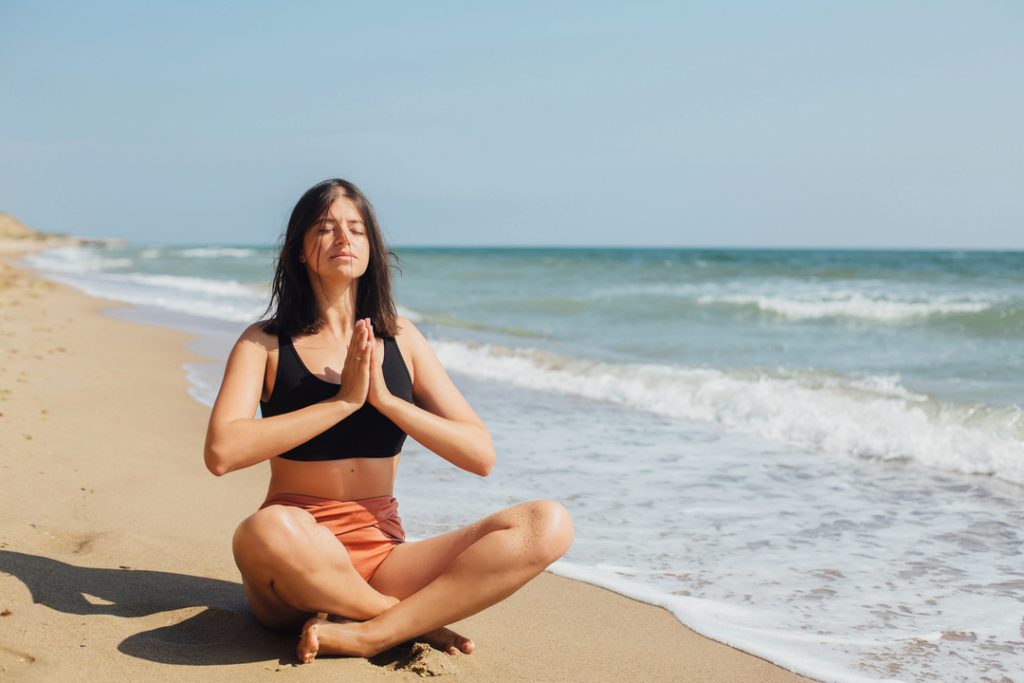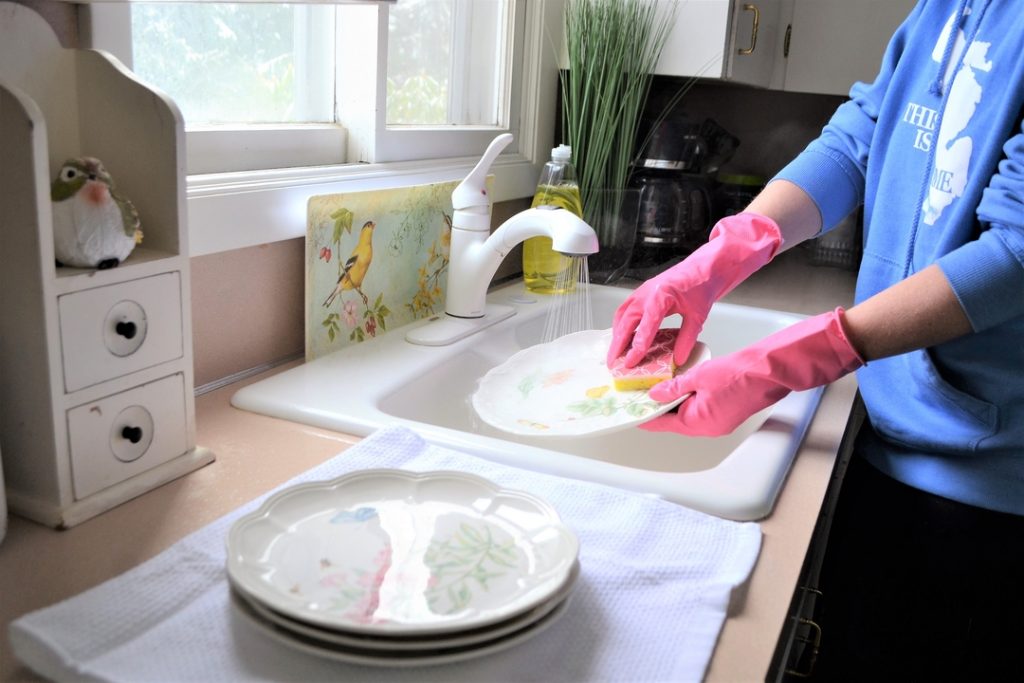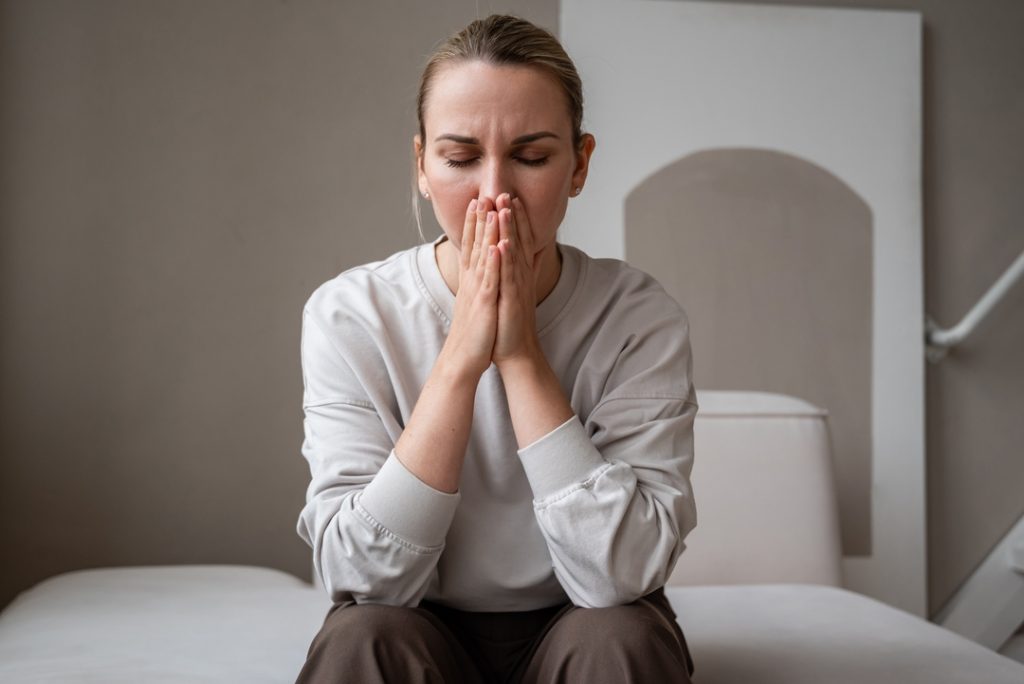Anxiety building up inside of you can feel like a lot of things.
It feels like heartache. It feels like you are being smothered and you feel an increasing difficulty to breathe. You may start sweating and your whole body, trembling.
For your body to give out these responses that usually accompany a surge in anxiety, a large number of resources and energy are mobilized. This energy, sometimes known as ‘nervous energy,’ has immense potential, but instead is being put to sustaining these symptoms in you.
The reactions you give out to anxiety appear to be very similar to those that you may give out when encountering a dangerous or threatening stimulus.
That is, it may seem similar to the feeling of fear. But mind you, anxiety and fear cannot be used interchangeably. Although they have common symptoms, they differ distinctively. Here is how.
How is anxiety different from fear?
Fear relates to the physiological and psychological reactions that pertain to an immediate danger that is present. It is how you respond to current threats in your surroundings, and is characterized by strong escapist tendencies.
The reaction that follows is a fight or flight reaction, that makes you ready to either attack the threat (fight) or flee from the situation (flight).
This is not the case with anxiety. Your anxiety doesn’t really develop as a result of an absolute impending or imminent threat. Anxiety, instead, is a future-oriented mood state characterized by apprehension because you cannot predict or control upcoming events.
While the fear response may recede after the threat has passed, with anxiety, the response tends to loom and slowly become more and more ambiguous.
There is no doubt so much of our energy goes into keeping us anxious. Imagine how then, this energy can be harnessed and redirected to pursuits that actually matter.
How can you get a hold of your anxiety, so that the energy can be diverted in ways you want. Here are some techniques you can try out.
How to channelize the energy that builds up as a result of anxiety?
Here are strategies that work towards handling your anxiety effectively. As you eventually learn to cope with your anxiety, better, you may focus on what matters to you.
1. Establish a self-care routine
Make it a point to take ample care of yourself. Your skin, your hair, your body, and your health – both physical and mental. Having a routine self-care process that promotes good well-being is directly related to dealing with your anxiety in a healthy manner.
Make a list of all things that are immediate mood lifters for you. For me, it includes but is not limited to hot cocoa, walks, my friends, chocolate, and puppies. What are your mood lifters? Practice them regularly. This is how you can take care of your mental health.
Try to soak in some fresh sun every day. Take a walk in the evenings on your road. Read every day. Watch youtube videos and research what skincare works for you. Pamper thyself! It is so fulfilling and can relax you, keeping your anxiety at bay.

2. Include physical activity into your routine regularly
Taking care of yourself physically can mean anything you like. If you like going on runs, do it. If you like to do yoga, do it. If you would like to meditate, but do not know where to start, try taking the help of apps available, like the LiveLife App to learn how to meditate effectively. Work out thrice every week and make sure to take in vegetables and fruits.
Fix a routine and try to keep to it. Sleep for more than 8 hours every day, for a plethora of problems, arise from sleep difficulties. Physical activity in general has multiple perks.
Moving your body and being active reduces muscle tension and keeps you distracted, too. Regular exercise can also boost your confidence levels, improve your mood and reduce symptoms of anxiety.
3. Learn and practice deep muscle relaxation techniques
The physical symptom of anxiety that is most prominent is how it can tighten up your muscles and cause muscle tension. It tenses up your body and leads to pain and stiffness.
One treatment modality that is often used to deal with this problem is to teach individuals the practice of deep muscle relaxation. JPMR is one such deep relaxation technique that is most often used with individuals with anxiety.
Jacobson’s Progressive Muscle Relaxation technique focuses on tightening and relaxing muscles alternatively. The focus of relaxation begins from the forehead and moves to other parts of the body, gradually inducing relaxing sensations as you progress.
4. Try to process information visually
One characteristic style of response that is found in anxious individuals is how they tend to avoid processing the visual or imagery aspect of information. That is, say, you talk to a person with anxiety about a horrible accident that happened to you.
Normally, people when trying to process this information will also automatically conjure up images of the incident. Therefore, the focus of attention is equally devoted to conceptual processing and visual processing.
But people with anxiety, have adapted mechanisms to automatically restrict or avoid processing emotional imagery. As a result, they focus too much on the intricacies of the information, mull over it, and exacerbate their worry.
Targeting this idea, imagery relaxation, or pushing yourself to deliberately process images, is a way you can deal with your anxiety. Take the time you need and try to process the information that comes your way as images.
You can try to imagine things as you hear them, or read them. If the book you’re reading talks about a beautiful village, paint that picture. Slowly, over time, this will start reflecting on how you process all information.
5. Indulge in active distractions
You can also try certain coping techniques that aim to distract you from the information or the situation that is making you anxious. These distractions can be anything but make sure they engage you cognitively and keep you engaged.
For example, passive distractions like watching TV or bingeing your favorite series on Netflix may not really serve the purpose you’re looking for it. While watching, it is just so easy for you to get distracted and back to your worry, easily.
Instead, do something that demands your entire attention, something that you also enjoy. Trying to solve a crossword puzzle or sudoku could work. These keep you involved and can act as effective diversions.
6. Clean and organize
Another activity that you can do that is bound to get you engaged and involved is to clean and organize. This can relate to anything. You may engage in cleaning your computer and organizing everything anew.
Or like in the more obvious case, this can be cleaning your room and organizing everything around you. How cleaning and organizing help you is that it restores a sense of self-efficacy in you. A sense that you are still in charge and not everything is out of your control.

7. Talk, or reach out if you need help
Social support can range from having a friend to talk to reach out for professional help, when in need. Several studies have confirmed the positive impact that perceived social support can have on anxiety and symptoms of anxiety.
One particular study was conducted by Han, et. al., and it found that as you focus on improving the level of social support available to you, you could effectively pave the way for alleviating dysfunctional symptoms of anxiety.
Having social support, and knowing that this system that you can rely on exists, can enhance your health status.
Therefore, remember that help is available, but you may have to ask for it. And anyone who asks for help, will not be denied it. Talk to your friends, your parents, or people you are close to, about how your anxiety is debilitating and how it is affecting you.
Talk about it and you may end up finding solace in what they have to say.
Conclusion
Anxiety may seem like the evil guy, for all the negative responses it brings about and how ill it makes you feel. But it is true, nevertheless, that anxiety in moderate, controlled, and limited amounts, is good for us.
It’s good for us because it drives performance. It worries us to an optimal level, that it improves our functioning. Social, physical, and intellectual performances are driven and enhanced by anxiety.
Researchers Yerkes and Dodson have, in fact, found that we tend to perform a little better when we’re anxious. When there’s no anxiety or worry over how we will perform, we fail to match our standards and give results.
In the same way, when there’s too much worry, the worry, by itself, becomes an obstacle hindering our performance.
Another researcher Liddell called anxiety the “shadow of intelligence.” He suggested that some amount of anxiety needs to loom over us. That our ability to plan our future in detail is linked to the nagging feeling of how things could go wrong.
So, maybe, look at anxiety this way. It isn’t entirely horrible. Look for how you can harness this, because, more often than not, it comes down to how you decide to deal with things.
Related Article: 8 Promising Techniques To Prevent Panic Attacks





